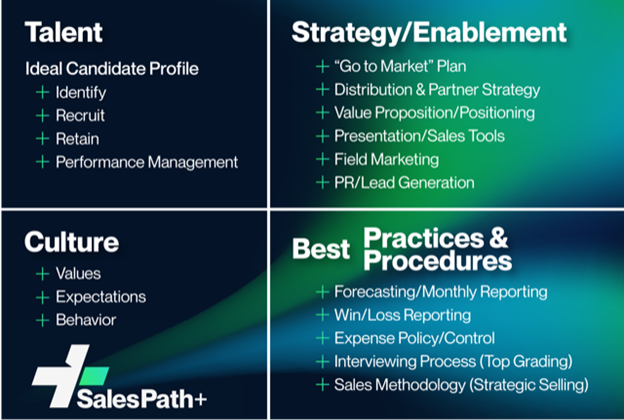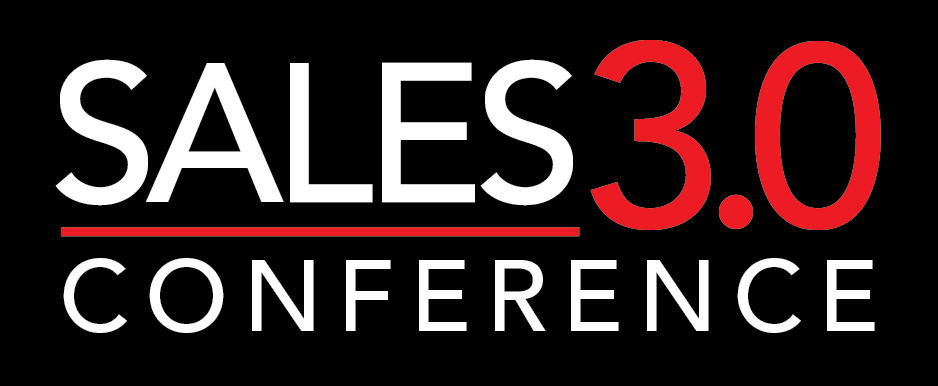Access the full white paper exploring the following strategy in detail.
Why do sales organizations fail so often? Why do some teams underperform while others prosper selling the same product to similar prospects? Is it poor hiring practices, failed leadership, poor territory, or bad luck? Is there a methodology for building a sales organization that always results in above-average performance?
Failing to understand why sales organizations underperform is costly. Mature companies spend 20-30% of revenue on sales. A failure in any selling unit is a waste of expenses on non-productive salaries, T&E, and rent, but these direct costs are a fraction of the opportunity cost of losing sales and customers to competitors.
For a startup company, a failing sales organization can be fatal. Startup companies have a limited number of chances to demonstrate revenue traction before their investors lose patience and withdraw support.
Typically, sales departments underperform because they focus exclusively on hiring talented people and providing technical training on the product. They expect the salesperson to “discover” the right prospects and sales strategies.
Providing only product knowledge is insufficient. Successful sales organizations provide precise direction on markets, best prospects, competitive positioning, company values, and goals as well as a set of sales tools that reinforce the overall instruction and strategy.
Building a high-performance sales organization is a straightforward endeavor for any company that develops the four quadrants of successful sales organizations:
Talent
The type of people we recruit, train, motivate, and retain to do the work and get the desired results.
Culture
The values, mores, and attitudes we instill throughout our organization. A strong culture establishes clear expectations for salespeople and leaders; reinforces the merits of high performance, teamwork, and accountability; and weeds out those who are not meeting expectations.
Sales Enablement
The collateral, tools, and training given to the sales team to help them sell, as well as the strategies and tactics management defines. In general, salespeople join an organization without the inherent know-how to successfully sell a product. The organization must direct them to the right markets, train them on the product, and establish effective selling methods. Sales enablement includes go-to-market strategy, vertical sales strategies, sales training, sales presentations, collateral, and lead generation programs.
Best Practices and Procedures
The methods we use to perform the administrative functions of all sales organizations, including forecasting, account planning, expense control monitoring, bidding, hiring, and interviewing. Effective best practices and procedures serve as a common language – reducing miscommunication and reinforcing the ideas and policies identified in the other three quadrants.
Sales organizations underperform when one or more of these areas are neglected. Turnarounds in underperforming sales units can be rapid if attention is given to the correct quadrant of the Four Quadrant Model.
Too often, underperformance is assumed to be the result of poor talent levels. Most often, the fault lies in the area of enablement. If proper attention is paid to the strategy, tools, and training needed for the average salesperson to be successful, an organization generally succeeds. Truly exceptional salespeople figure it out themselves and succeed. As we stated earlier, organizations succeed if the average salesperson succeeds. Enabling the majority of the team is the fundamental building block of a high-performing sales organization.
The image of a successful sales leader is often the hard-charging fire breather who motivates through emotional outbursts and intimidation. Nothing could be more off the mark. The truly exceptional sales leader is the person who motivates through the force of ideas. People follow when they believe the leader has a plan for achieving the unit’s collective goal and is genuinely interested in their success.


Kevin O’Keefe is a proven sales, marketing, and services executive with extensive experience in maximizing revenue and profit growth for numerous companies. He currently serves as the CEO of ProfitKey ERP, and is the founder of Advanced Sales AI, the creator of SalesPath+ sales execution software for enterprise sales teams.



